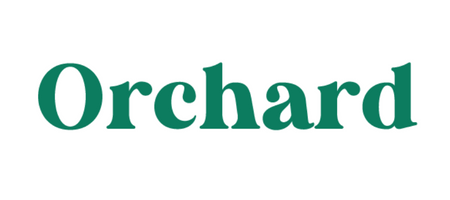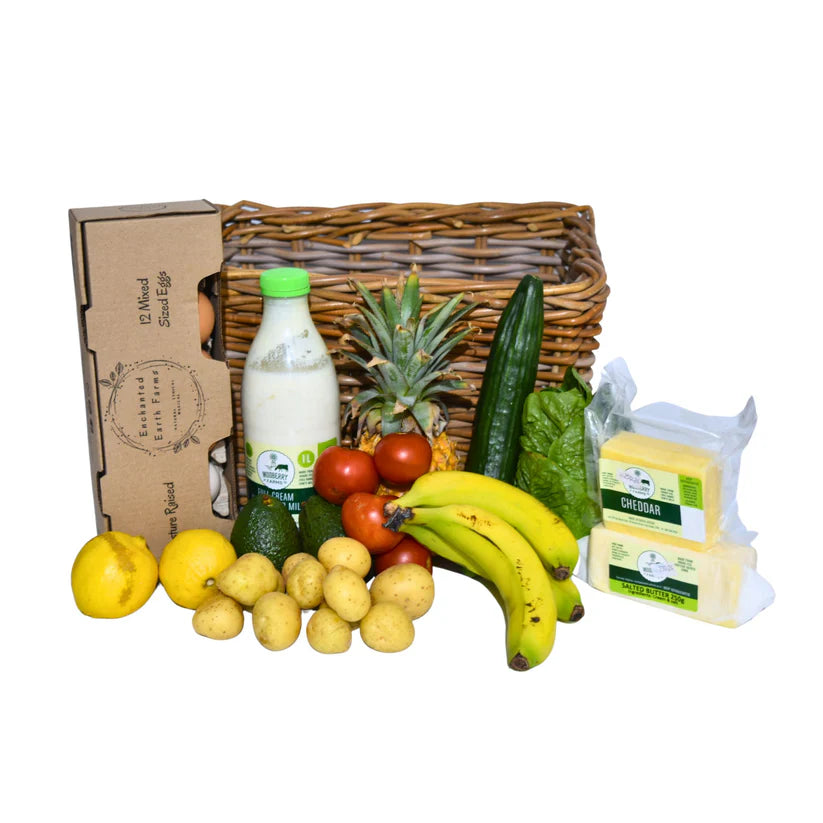Article Summary:
- The National Organic Standards Board (NOSB) evaluates and recommends substances for the National List of Allowed and Prohibited Substances, ensuring organic integrity.
- Natural substances are generally allowed in organic farming, while synthetic substances are prohibited unless specified exceptions apply, such as certain fertilizers and pesticides.
- Recent amendments to the National List include the prohibition of vitamin B1 and procaine, while renewing allowances for oxytocin and sucrose octanoate esters in organic production.
Organic farming has gained significant popularity in recent years as consumers seek out food products that are grown using sustainable and environmentally-friendly methods. One of the key principles of organic agriculture is the avoidance of synthetic chemicals, such as pesticides and fertilizers, in favor of natural, biodegradable alternatives. However, the organic standards go beyond just prohibiting synthetic inputs - there are also certain natural substances that are banned from use in organic farming due to potential environmental or health concerns. In this article, we will explore the National List of Allowed and Prohibited Substances, which outlines exactly what materials can and cannot be used in organic production, discussing the rationale behind banning certain synthetic chemicals and natural substances, the exceptions where synthetic inputs may be allowed under specific conditions, and the role of the National Organic Standards Board in regulating allowed materials, so that organic farmers and consumers alike can have confidence in the integrity of the organic seal and the safety of organic products.
Overview of the national list of prohibited substances
The National List of Allowed and Prohibited Substances in South Africa identifies substances that may and may not be used in organic crop and livestock production, as well as substances that may be used in or on processed organic products. In general, synthetic substances are prohibited unless specifically allowed, while non-synthetic substances are allowed unless specifically prohibited.
The list is regularly updated by the Department of Agriculture, Land Reform and Rural Development to ensure the integrity of organic farming practices in the country. Substances that are prohibited include certain pesticides, fertilizers, and other agricultural chemicals that are deemed harmful to the environment or human health.
Some examples of prohibited substances in South Africa include:
- Arsenic and its compounds
- Mercury and mercury compounds
- Methyl bromide (banned since 2015)
- Nonylphenols (withdrawn from registration and restricted since 2010)
Certain substances may be allowed under specific conditions, such as for use in specific crops or up to a maximum amount. The list also includes exceptions where synthetic inputs may be permitted if no suitable organic alternative is available.
The National Organic Standards Board, a federal advisory committee, plays a key role in evaluating substances for inclusion on the National List. They review petitions for substances to be added or removed from the list, considering factors such as their impact on human and animal health, the environment, and organic farming practices.
By adhering to the National List of Prohibited Substances, organic farmers in South Africa can ensure that their products meet strict standards for safety and sustainability, giving consumers confidence in the integrity of the organic seal.
What can't be used in organic farming
Organic farming is based on the principle of avoiding synthetic chemicals and instead relying on natural, biodegradable inputs to maintain soil fertility and control pests and diseases. However, not all natural substances are allowed in organic production due to potential environmental or health concerns.

Shop 12 Pasture Raised Eggs at Orchard Food
One category of prohibited substances includes certain pesticides derived from natural sources. While these may seem like a natural alternative to synthetic pesticides, some have been found to be toxic to beneficial insects, aquatic life, or even humans. Examples include rotenone, a botanical insecticide derived from the roots of certain plants, and nicotine sulfate, an insecticide derived from tobacco plants.
Synthetic fertilizers, such as ammonium nitrate and superphosphates, are also prohibited in organic farming. Instead, organic farmers rely on natural sources of plant nutrients, such as animal manure, compost, and rock powders. However, even some natural fertilizers are restricted or prohibited if they are deemed to be environmentally harmful or unsustainable. For example, Chilean nitrate, a natural mineral fertilizer, is prohibited due to concerns about its potential to contaminate groundwater.
Certain processing aids and ingredients used in organic processed foods are also restricted or prohibited. These include synthetic preservatives, artificial colors and flavors, and genetically modified organisms (GMOs). Organic processed foods must be made using only approved ingredients and processing methods to maintain their organic integrity.
It's important to note that the list of prohibited substances is not static and is regularly updated based on new scientific evidence and changing priorities in organic agriculture. The National Organic Standards Board and regulatory agencies continuously evaluate substances to ensure that organic farming practices remain environmentally sustainable and protective of human health.
Natural substances that are prohibited in organic production
While organic farming emphasizes the use of natural substances, certain natural inputs are prohibited due to their potential harmful effects on human health and the environment. The National List of Allowed and Prohibited Substances outlines these restrictions, ensuring that organic practices remain safe and sustainable.
One notable category of prohibited natural substances includes toxic materials that pose health risks. For example, substances like strychnine and arsenic, despite being naturally occurring, are banned in organic production due to their toxicity and potential to cause harm to both humans and wildlife. Similarly, nicotine sulfate, derived from tobacco, is prohibited because of its high toxicity to beneficial insects and other non-target organisms.
Certain natural pesticides, which may seem like viable alternatives to synthetic chemicals, are also restricted. For instance, rotenone, a natural insecticide derived from the roots of certain plants, has been banned in organic farming due to its harmful effects on aquatic life and its potential health risks to humans. Additionally, some essential oils and plant extracts, while often marketed as safe and natural, may be prohibited if they are found to have negative environmental impacts or pose risks to non-target species.
Moreover, the use of certain fertilizers and soil amendments that are derived from natural sources can also be restricted. For example, substances like Chilean nitrate, a naturally occurring mineral fertilizer, are prohibited due to concerns about their environmental impact, particularly regarding water quality and soil health.
The National Organic Standards Board (NOSB) plays a critical role in evaluating and determining which natural substances should be prohibited in organic production. This process involves thorough reviews of scientific evidence and public input to ensure that the integrity of organic farming practices is upheld. By prohibiting specific natural substances, the organic standards aim to protect human health, promote environmental sustainability, and maintain consumer confidence in organic products.
Allowed substances under specific conditions
In organic farming, while many synthetic substances are strictly prohibited, there are certain exceptions where specific synthetic inputs may be allowed under particular conditions. These allowances are designed to address unique challenges that organic farmers may face while maintaining the integrity of organic practices. The National List of Allowed and Prohibited Substances provides guidance on these exceptions, ensuring that any allowed substances meet strict criteria for safety and environmental impact.
One example of an allowed substance is certain synthetic fertilizers that may be permitted in situations where organic alternatives are not available or effective. For instance, substances like ammonium sulfate may be used in organic farming if there are no suitable organic fertilizers that can meet the crop's nutrient needs. However, the use of such substances is often limited to specific crops or conditions, and farmers must demonstrate that they have exhausted all organic options before resorting to synthetic inputs.
In pest management, some synthetic pesticides may be allowed if they are deemed necessary to protect crops from significant threats that could jeopardize the harvest. For example, certain insecticides that have been evaluated and approved by regulatory bodies may be permitted for use in organic production if they pose minimal risk to human health and the environment. However, these substances are typically subject to strict application guidelines, including restrictions on timing and dosage, to minimize their impact on non-target organisms and ecosystems.
Additionally, some processing aids and ingredients used in organic food production may be allowed under specific conditions. For instance, certain synthetic preservatives may be permitted in processed organic foods if they are necessary to maintain product safety and quality and if no suitable organic alternatives exist. These allowances are carefully regulated to ensure that the overall integrity of the organic product is maintained.

Shop 500g Pasture Raised Mince at Orchard Food
The process for allowing these substances involves rigorous evaluation by the National Organic Standards Board (NOSB) and other regulatory agencies. They assess the potential risks and benefits of each substance, considering factors such as its environmental impact, effects on human health, and compatibility with organic farming practices. By allowing specific substances under controlled conditions, organic farming can address practical challenges while still adhering to the core principles of sustainability and environmental stewardship.
The role of the national organic standards board in regulating inputs
The National Organic Standards Board (NOSB) plays a crucial role in shaping the landscape of organic farming in the United States by advising the Secretary of Agriculture on various aspects of organic production, handling, and processing. Established under the Organic Foods Production Act, the NOSB consists of 15 dedicated volunteers representing diverse sectors of the organic community, including farmers, environmentalists, consumer advocates, and scientists. This composition ensures that a wide range of perspectives is considered when making recommendations about what substances should be allowed or prohibited in organic agriculture.
One of the primary responsibilities of the NOSB is to oversee the National List of Allowed and Prohibited Substances, which outlines the synthetic and non-synthetic materials that can be used in organic farming. The Board reviews petitions for substances to be added to or removed from this list, evaluating their environmental impact, effects on human health, and compatibility with organic farming practices. If a substance is deemed necessary for organic production and meets specific criteria, the NOSB may recommend its inclusion on the National List. Conversely, substances that pose risks to health or the environment can be prohibited to maintain the integrity of organic standards.
The NOSB operates transparently, holding public meetings twice a year where stakeholders can provide input and engage in discussions about proposed changes to organic regulations. This open forum allows farmers, consumers, and other interested parties to voice their opinions and share experiences, ensuring that the Board's recommendations reflect the needs and concerns of the organic community. After thorough deliberation, if a proposal receives a two-thirds majority vote, it is forwarded to the USDA for consideration and potential implementation.
Additionally, the NOSB is tasked with conducting periodic reviews of substances on the National List, known as sunset reviews, which occur every five years. This process ensures that the regulations remain relevant and responsive to new scientific findings and evolving agricultural practices. By continuously evaluating the substances allowed in organic farming, the NOSB helps uphold the principles of sustainability and environmental stewardship that are central to organic agriculture.
Through its advisory role, the NOSB significantly influences the standards and practices of organic farming, ensuring that the organic label remains a trusted symbol of quality and integrity for consumers. By balancing the needs of producers with the imperative to protect public health and the environment, the NOSB plays a vital part in the ongoing evolution of organic agriculture.










